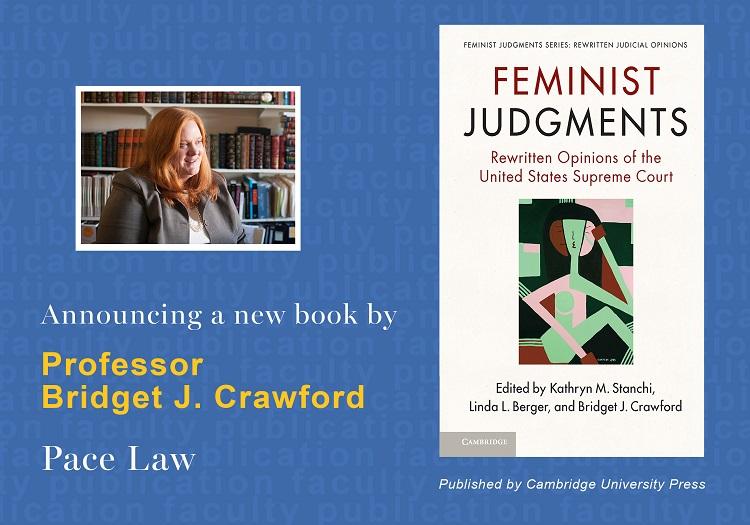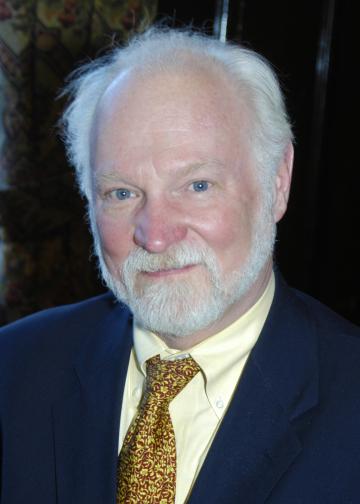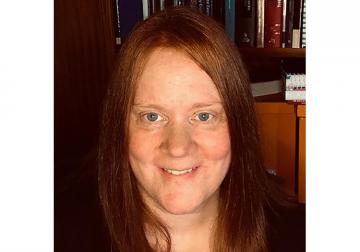Book release: “Feminist Judgements”– Professor Crawford, editor & Professor Simon, contributor

Law professors Kathryn M. Stanchi, Linda L. Berger, and Bridget J. Crawford announce the release of their book “Feminist Judgments: Rewritten Opinions of the United States Supreme Court.” Published by Cambridge University Press, “Feminist Judgments” explores how 25 United States Supreme Court cases might have been decided differently if justices had applied feminist methods and perspectives to their decisions.
The professors, who served as editors for the project, tasked more than 50 scholars and lawyers with reexamining a variety of cases decided between 1873 and 2015, drawing only upon the law available to the court at that time. The decisions that were reexamined range from the familiar– Roe v. Wade—to others that are less well known, including cases that address pensions, immigration, and the military draft. Each of the 25 rewritten opinions is accompanied by a commentary by a second scholar that provides context for the original decision as well as how the application of feminist theories affected the outcome.
“The publication of ‘Feminist Judgments’ proves that influential and well-supported opinions—based on the same facts and law as the original ones—could be written by decision makers who asked different questions and saw circumstances from different vantage points,” remarked Professor Berger, a faculty member at UNLV School of Law. “Both their different reasoning processes and sometimes different outcomes demonstrate that the original opinions were not the inevitable result of judges simply calling balls and strikes.”
The timeliness of “Feminist Judgments”—and its importance—is evident in the current U.S. presidential election. With the presumption that the next president will appoint at least one justice and could shape the Supreme Court for years to come, Professor Crawford notes how the book illuminates the importance of diversity in the judiciary.
“Most formal discrimination against women has been eliminated from federal and state law, but the fact is that gender is still a major determining life factor for many Americans,” noted Professor Crawford of Pace University School of Law. “Women need to have the rights to make decisions about their bodies and their futures, to participate fully in private and public life, and to live free from discrimination. Judges informed by a feminist perspective can help shape the reality on the ground. They can help make sure that the law is consistent with our highest and best aspirations for equal justice.”
Kathryn Stanchi initiated the project, inspired by a similar one in the United Kingdom that called upon scholars to provide the feminist voice that was missing from British jurisprudence. That project had been patterned after a similar initiative undertaken by the Women’s Court of Canada. While feminist legal theory has a rich history in American academia, Professor Stanchi observed that its influence is not as evident at the judicial level.
“This project epitomizes why it is so important to have diversity in the judiciary—especially diversity of perspective,” said Professor Stanchi from Temple University School of Law. “Justice Sotomayor famously said that a ‘wise Latina woman with the richness of her experiences’ would make different and better decisions than someone without those experiences. Our project aims to show that judicial opinions as a body have not necessarily been written by judges with the widest range of life experiences—leading to systemic inequalities based on race, gender, sexuality and class. These systemic inequalities are not intrinsic to law and can be changed. I hope the project proves that change is possible.”



